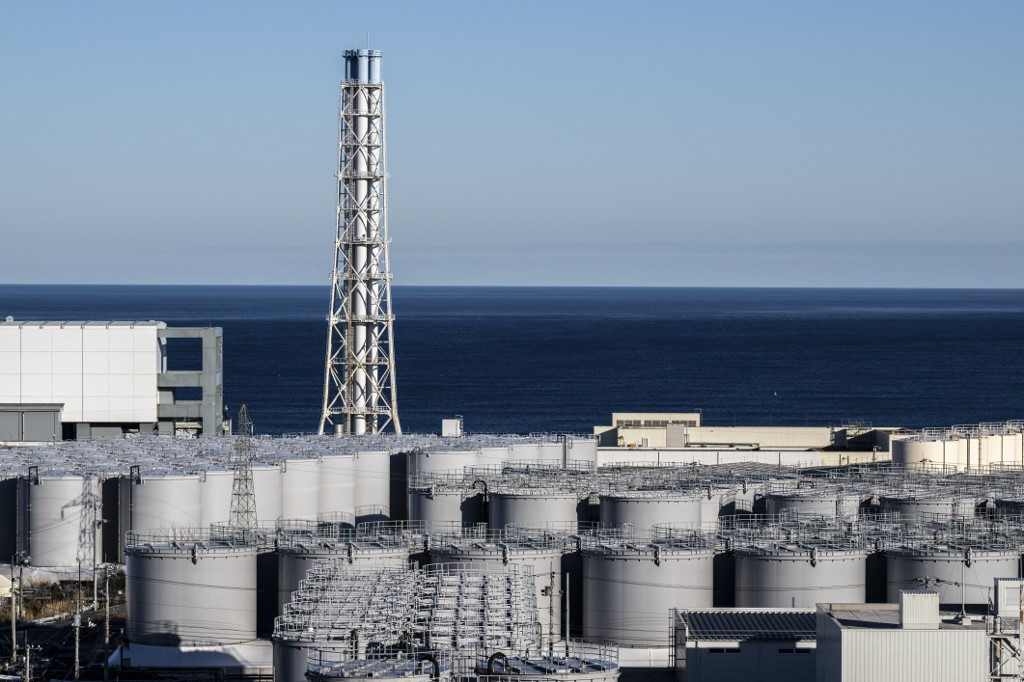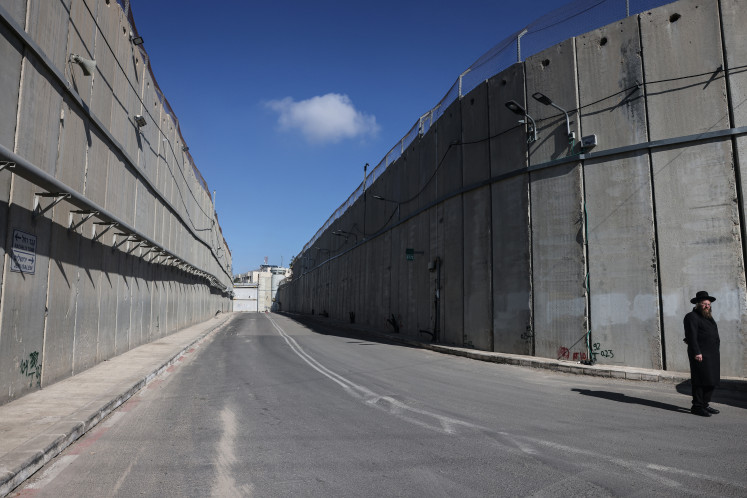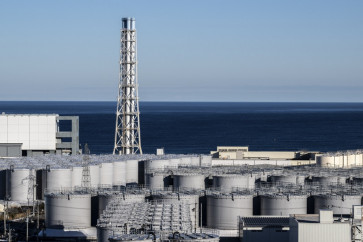Popular Reads
Top Results
Can't find what you're looking for?
View all search resultsPopular Reads
Top Results
Can't find what you're looking for?
View all search resultsConcerns linger over Fukushima wastewater discharge despite green lights
Indonesian fisheries association argues that the wastewater still contains radioactive materials higher than the safety threshold set by the government, despite treatment.
Change text size
Gift Premium Articles
to Anyone
E
nvironment and health concerns remain regarding Japan’s plan to release treated radioactive water from the tsunami-wrecked Fukushima power plant into the ocean, despite reassurances from the United Nations nuclear watchdog and scientists.
The Japanese government is planning to start releasing the treated wastewater as early as August, following a green light for the plan from the International Atomic Energy Agency (IAEA), Nikkei has reported. The plan to discharge the wastewater into the sea would have a negligible impact on humanity and the environment, said IAEA Director General Rafael Mariano Gross on Tuesday during his visit to Japan. Gross also presented the agency’s safety review to Japanese Prime Minister Fumio Kishida in Tokyo.
The plan still needs official approval from the national nuclear regulatory body, which is expected on Friday, Reuters reported.
Read also: IAEA gives Japan stamp of approval for Fukushima water release
But Indonesian fisheries professionals were still concerned that the discharged wastewater might still contain significant amounts of radioactive elements, or radionuclides, far above safety threshold for marine animals and humans.
The radionuclides, such as Hydrogen-3 and Cesium-137, are known to pose a threat to sea animals and humans if exposed to large amounts. Scientists believe some of the materials already have reduced radioactivity, as 12 years have passed since the Fukushima incident, and they have relatively short half-lives, or the time needed for the radioactivity to decrease by half.
But other materials take longer to decay, like Cesium-137, whose physical half-life is around 30 years. Indonesian Aquaculture Society (MAI), a fisheries association, believes that cesium-137 with a concentration of 18,000 becquerels (Bq) per kilogram will be released with the wastewater. The association cited data released in 2013 by the Tokyo Electric Power Company (TEPCO), which operates the power plant.


















